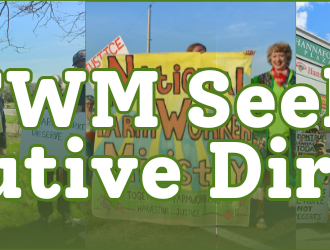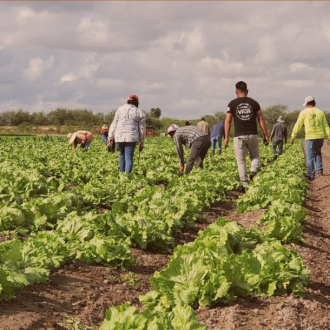Pass around for each participant to read one paragraph each before the meal.
Communal Act
Many generations after that first supper, there was another feast, and the guests ate and drank throughout the day and on into the night. A huge table was draped with a dazzling white cloth, woven of cotton picked by farmworkers in Alabama and Georgia.
Baskets were heaped high with fruit: citrus plucked in Florida groves by Hispanic, Black and Haitian migrants; melons carried from South Carolina fields by malnourished migrant children; apples and cherries picked in Pennsylvania and West Virginia by underpaid families traveling to follow the harvest.
Platters were piled high with fresh vegetables: white and sweet potatoes, cucumbers, corn, beans, lettuce, cabbage, peppers, onions–each representing the hard labor of seasonal farmworkers.
Throughout the feast, wine flowed–wine from vast California vineyards, where Latino laborers had organized, to demand and receive better pay and working conditions.
And the people sat back and ate, and drank, and talked and laughed, and the air was clouded with smoke from their North Carolina tobacco.
When the hour was come, a brown skinned guest, wearing worn overalls, stood among them, took the remaining bread, offered thanks, and gave it to them, saying, “This is my body, which is given for you; take and eat, in remembrance of all of us who labor in the fields, that you might eat.’
And likewise, she took the wine and when she had given thanks, gave it to them. And she said to them, “This is the blood of the migrant farmworkers, which is shed for many. Verily, I say unto you, we will not drink of the good wine, nor eat of the feast until the kingdom of God comes to this earth.”



